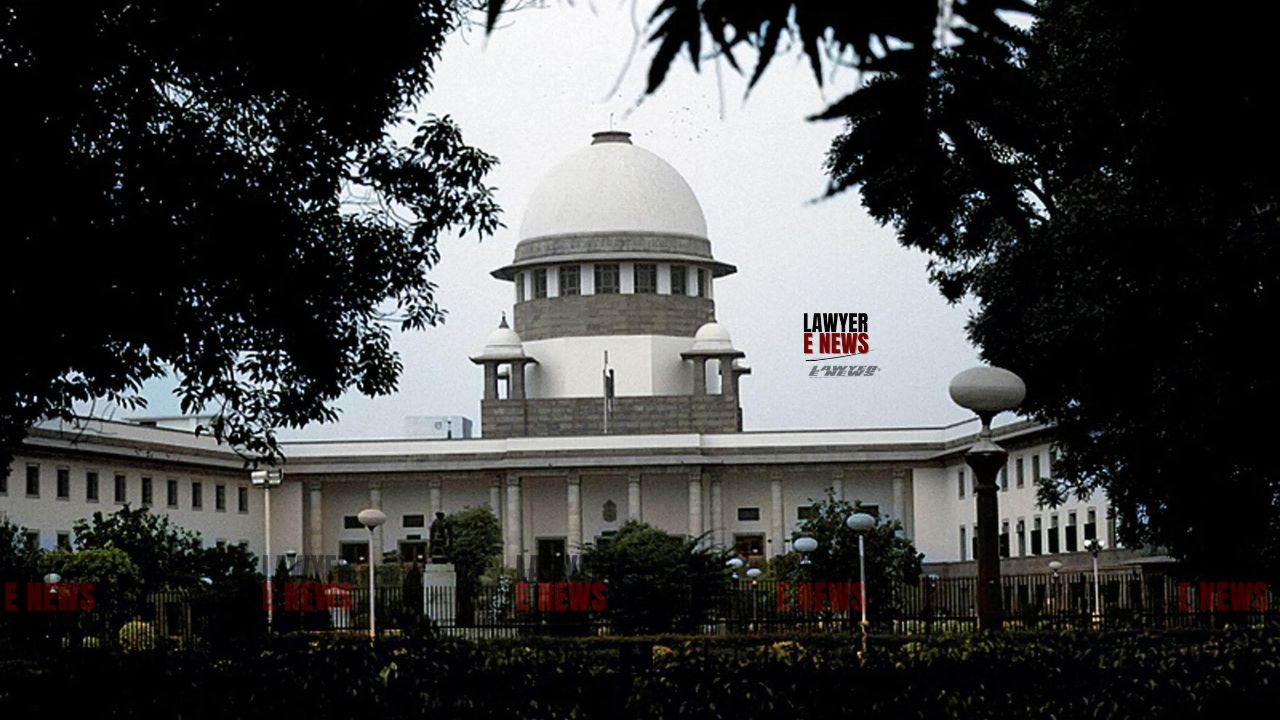-
by Admin
15 February 2026 5:35 AM



On November 6, 2024, the Supreme Court of India delivered a judgment affirming the necessity of obtaining prior sanction under Section 197(1) of the Code of Criminal Procedure (CrPC) for prosecuting public servants under the Prevention of Money Laundering Act, 2002 (PMLA). The case involved an appeal by the Directorate of Enforcement (ED) against the High Court’s decision to quash criminal proceedings against two public servants without prior sanction. The Supreme Court ruled that the provisions of the CrPC concerning sanction are applicable to PMLA cases, thereby protecting public servants from prosecution for acts committed in the discharge of their official duties without government approval.
The case arose from criminal complaints filed by the Enforcement Directorate under the PMLA against Bibhu Prasad Acharya, the Vice Chairman and Managing Director of the Andhra Pradesh Industrial Infrastructure Corporation (APIIC), and Adityanath Das, Principal Secretary, I&CAD Department, Government of Andhra Pradesh. The complaints alleged that the respondents were involved in money laundering activities in collaboration with private entities and had abused their official positions to facilitate illegal financial transactions.
The Special Court took cognizance of the complaints and issued summons to the respondents. The respondents filed petitions before the High Court, contending that they were public servants and that prior sanction under Section 197(1) CrPC was required before proceeding with the prosecution. The High Court quashed the cognizance order against the respondents for lack of sanction, prompting the Enforcement Directorate to appeal to the Supreme Court.
The primary legal issue was whether the requirement for prior sanction under Section 197(1) CrPC applies to proceedings under the PMLA when the accused are public servants. The ED argued that Section 71 of the PMLA, which grants the PMLA overriding effect over other statutes, excludes the requirement for sanction. However, the Court disagreed, emphasizing that Section 65 of the PMLA allows for the application of the CrPC provisions as long as they are not inconsistent with the PMLA’s objectives.
Court’s Observation: "Section 65 of the PMLA makes the CrPC applicable to all proceedings under the PMLA, provided there is no inconsistency. The purpose of Section 197(1) CrPC is to protect public servants from frivolous prosecution for actions connected to their official duties. This objective aligns with the intent of the PMLA and is not inconsistent with its provisions."
The Court examined whether the acts alleged against the respondents were committed in the discharge of their official duties, which would necessitate sanction under Section 197 CrPC. The ED contended that the acts of money laundering were outside the scope of official duties and thus did not warrant the protection of prior sanction. However, the Court held that if the alleged acts were reasonably connected to official duties, even if they exceeded the scope of duties, they would qualify for protection under Section 197 CrPC.
Held: "Acts reasonably connected with official duties, even if performed in excess of such duties, warrant prior sanction for prosecution under Section 197 CrPC."
The Court addressed whether the respondents, as officers in a state-owned corporation and a state government department, qualified as public servants under Section 197 CrPC. The respondents argued that they were public servants because they held positions appointed by and removable with the approval of the state government. The Court agreed, noting that public servants in government corporations on deputation from state service fall under the protection of Section 197 CrPC.
Court’s Observation: "The first respondent, appointed by the State Government as Vice Chairman and Managing Director of APIIC, qualifies as a public servant under Section 197 CrPC."
The ED argued that Section 71 of the PMLA, which provides the Act with overriding effect, excluded the requirement for sanction under Section 197 CrPC. However, the Court clarified that Section 65 of the PMLA specifically incorporates CrPC provisions when they are consistent with the PMLA. The Court held that since there was no conflict between Section 197 CrPC and the PMLA, the requirement for sanction applied.
"Section 71 of the PMLA does not override the requirement of Section 197 CrPC for sanction in prosecuting public servants, as Section 65 allows CrPC provisions where consistent with the PMLA."
The Supreme Court upheld the High Court's decision to quash the cognizance orders against the respondents for lack of sanction. The key findings include:
Requirement of Sanction: The Court held that prior sanction under Section 197(1) CrPC is mandatory in PMLA proceedings involving public servants when the alleged acts are connected to official duties.
Non-Applicability of Section 71 PMLA: The Court ruled that Section 71 PMLA, which grants overriding effect, does not negate the CrPC’s sanction requirement since Section 65 PMLA explicitly allows the CrPC’s application when consistent.
Public Servant Definition: The Court recognized that officers appointed by the government to positions in state corporations on deputation are public servants and therefore eligible for protection under Section 197 CrPC.
Liberty to Refile with Sanction: The Court granted the Directorate of Enforcement the liberty to refile the case and seek cognizance if prior sanction is obtained.
"The High Court's decision to quash the cognizance order is upheld due to the lack of sanction under Section 197(1) CrPC. However, the Directorate of Enforcement may pursue prosecution if it obtains the necessary sanction, subject to any legal objections from the respondents."
The Supreme Court’s judgment reaffirms the procedural safeguards provided to public servants under Section 197 CrPC, even in cases involving serious offenses like money laundering under the PMLA. By upholding the requirement of prior sanction, the Court has emphasized the protection of public servants against prosecution for actions reasonably connected to their official duties, thus ensuring that criminal proceedings against public officials proceed only with government approval.
The appeals are dismissed. High Court’s decision to quash cognizance due to lack of sanction under Section 197(1) CrPC upheld, with liberty granted to the Directorate to seek cognizance upon obtaining the required sanction.
Date of Decision: November 6, 2024
